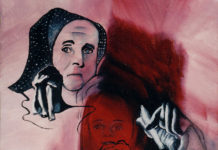In this piece for The New Inquiry, Sophie Putka chronicles the mental health profession’s long history of pathologizing, diagnosing, and medicating women’s emotions.
“With Freud’s claims about the female psyche mostly discredited and the advances in treatment of mental illness over the years lauded, the average bystander might conclude that we’ve come a long way from labelling a normal reaction to sexual assault “hysteria.” But a long legacy of prescriptive and sexist science remains at the foundation of psychiatric medical treatment for women. From the first diagnosis of hysteria to the present-day disparities in mental health treatment, the tradition of medicating women’s emotions has held constant. Within this context, the line between empirical treatment and medicating the lived experiences of women grows dangerously thin.
Today, more women than ever take antidepressants. While women are more likely to seek professional help than men, a study published in 2017 by the CDC shows women are prescribed antidepressants at twice the rate of men. More female physicians are actually doing the prescribing, but they work within a system of medical knowledge that seeks to cure women of the very psychiatric symptoms associated with gender norms determined for them: stress from balancing work and family, sexual abuse, and higher rates of poverty. We can trace the arc of medical authority over women’s minds back to early roots in science and medicine that prioritized women’s conformity to norms within the family and home.”















